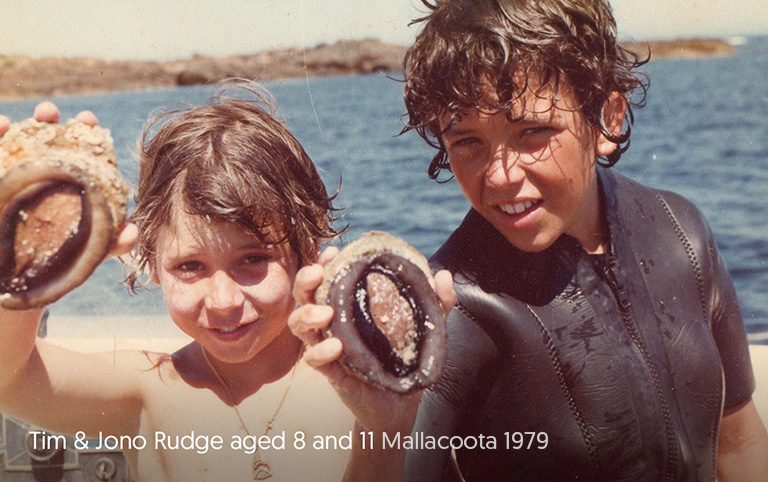Every part of Yumbah's farming operations is in step with the natural cycle of the ocean.
Tim Rudge had a passion for abalone and the Great Southern Ocean, and in early 1999 convinced a group of similarly young investors that he had found the perfect site for an abalone farm in far south-west Victoria.
And so, in a windswept dune, Yumbah’s Narrawong site was born.
In Perth, some equally enthusiastic investors led by Shane McLinden worked with Fremantle TAFE to discover how to spawn and raise Australian abalone, and by 2003 bought into an existing farm at Point Boston near Port Lincoln, South Australia. Here, under the guidance of Tom Hyde, much of the standard technology underpinning today’s industry was invented.
In 2006, under the leadership of Jonathan Lillie and Craig Kelly, seven independent farms joined together to co-operatively market their abalone under the AUSAB Australian Abalone brand.
Safety through scale and geography led the dreamers from the west and east to merge in 2008. Expansion in that same year saw the Kangaroo Island farm, then co-managed by David Connell, acquired followed by the purchase of Yumbah Bicheno, Tasmania in 2010. Opportunity arose again in 2012 leading to the acquisition of a second abalone farm located at Point Boston. In 2013 the AUSAB company and brand was purchased by Yumbah. The land between the two farms at Point Boston was purchased in 2016, to form what is now Yumbah Port Lincoln.
The Yumbah story of integrated aquaculture continues with the establishment of Yumbah Aquafeed, a world-class abalone feed manufacturer, a state-of-the-art centralised processing facility the purchase of Yumbah Seafarms and the formation of a joint venture with Cameron’s Oysters to produce oyster spat from our Port Lincoln hatchery.


